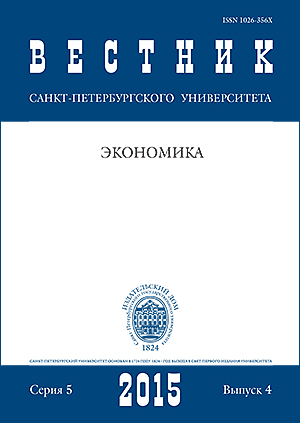Conceptual Framework of Accounting: Logic of Evolution
Abstract
The analysis of evolution of approaches to development of the theoretical bases of accounting, including consideration of the main ideas regarding formation of accounting regulation of an economic and methodological orientation and correlation of scientific and practical aspects of accounting are presented in this paper. The logic of the article provides in the following structure: a) business environment and accounting at the turn of XIX and XX centuries; b) the objective of accounting and the change of the basic goals; c) the essence of the legal and methodological regulation of accounting; d) inductive and deductive approaches to the construction of the theory of accounting; e) the Russian specificity in the regulation of accounting; (f) the initiators and developers of the idea of conceptual framework of accounting; g) the main stages of the evolution of conceptual framework of accounting, including overview of European initiatives and international experience. It is shown that the introduction of the American model of administrative and methodological management in the area of accounting
is becoming a worldwide trend. Need of change of relationship between the Russian regulator in the area of accounting and professional accounting institutes is proved, the separate reasons of insufficient level of scientific researches in the field of accounting in Russia are presented. Refs 58. Table 1.
Keywords:
conceptual framework of accounting, deductive and inductive approaches, legal regulation, methodological regulation, control and analytical functions of accounting, information and communication functions of accounting, professional accounting institutions, accounting legislation, the Anglo-American accounting model
Downloads
References
References in Latin Alphabet
Translation of references in Russian into English
Downloads
Published
How to Cite
Issue
Section
License
Articles of the St Petersburg University Journal of Economic Studies are open access distributed under the terms of the License Agreement with Saint Petersburg State University, which permits to the authors unrestricted distribution and self-archiving free of charge.






